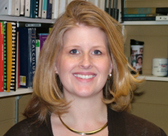Being a Part of the Conversation

By Darcie Delzell
Recently I attended a CACE workshop entitled, "How the Christian academy can be counter-cultural rather than anti-cultural". We spent our time discussing various challenges related to being both a part and product of current culture and also our call to, in some cases, be counter-cultural.
I am a statistician, and I can’t say that I often feel my work needs to be counter-cultural. I perform statistical analysis and inference in much the same way as my non-religious counterparts. However, one (fairly) new cultural phenomena is that the issues of our day are often argued with the results of a statistical analysis as a primary evidentiary tool. These arguments (or conversations, if you will) are important. Christians should be active participants in discussions related to climate change, sexual identity, religious freedom, economic policy, education, etc. We are compelled to be God’s representatives and servants and truth-tellers in these areas. We need to be a part of the conversation. But that conversation is becoming more and more quantitative in nature.
So how do Christians who are not statisticians or scientists or economists participate in these conversations? How can we enter into these discussions and offer informed commentary? How can we make choices based on our understanding of God’s purpose and will on earth, but also utilizing information we are given to increase our understanding of the problem at hand? I would like to offer a few suggestions.
1. Be competent
It is no longer the case that only ‘hard science’ uses statistical analyses. Decisions are being made in all areas of social science (psychology, education, sociology, economics, etc.) based on the gathering of numerical data and mathematical analyses of these data. Even the literature scholars are getting in on the action via the ‘Digital Humanities’. But statistical analysis is math, and those who want to converse in these arenas need to be competent in the basics. So take a class at your local community college or read a book on basic statistics (there is no shortage of either). You will be making yourself equipped to read books and magazine articles and listen to debates on the important issues of the day with understanding of the statistical results.
2. Be skeptical
It is not easy to lie with statistics when giving full disclosure of the methods. But how many newspaper/magazine articles, blogs, or news videos give any real detail of the analysis? It rarely happens except in scholarly articles, and sometimes not even then. If only reporting results, it is VERY easy to lie (or manipulate or skew). It is also easy to simply do a poor job. Far more is concluded with the aid of ‘statistical evidence’ than should be reasonably concluded. Complex issues yield complex data, which usually require complex methods that rely on a number of important assumptions. So be wary of believing that something has been ‘proven’ by a single p-value reported on a blog post (or even a scholarly article). One poignant example of a lack of skepticism in the general public is the vaccine scare. The 1998 article by Andrew Wakefield published by The Lancet started the scare [1]. Yet, to be more accurate, it was the media’s coverage of the article that convinced many, many parents that the MMR vaccine caused autism. In reality, Wakefield himself made no such claim, although he did do such a poor job in both his science and his statistical analysis that the article was retracted, which is no small feat.
3. Be wary of anecdotal evidence
Following the Wakefield article, scores of parents determined that they had finally been given a reason for their child’s autism diagnosis. Celebrities like Jenny McCarthy perpetuated this belief via multiple media outlets, including The Oprah Show. This resulted in a measurable decrease in the number of children being vaccinated. Yet real, verifiable evidence that vaccines cause autism has never been produced. In fact, quite the opposite has happened. The Institute of Medicine of the National Academies recently published an extremely comprehensive review of vaccine research as it relates to autism and the current vaccine schedule, and the committee concluded that there are no major safety concerns at this time [2]. However, more parents watch Oprah than read safety reports. But this type of ‘my story’ evidence is anecdotal; parents (not medically trained physicians) telling their stories of how their children contracted autism as a result of vaccination. These accounts are highly emotional and subjective and can easily strike fear into other parents. The influence of this fear can be stronger than the influence of well-informed pediatricians.
We need to get better and better at assessing information. If we don’t, we run the risk of becoming non-participants, unable to speak the language of today. If we do, we are able to influence. We are able to influence public policy in ways that help the poor and honor God’s compassion for them. We are able to influence the way our children are educated so that they learn to be good thinkers and wise decision-makers, reflecting their God-given abilities to reason and make choices. And we are better able to make personal judgments that reflect wise, informed decision-making practices and the inspiration of the Holy Spirit.
[1] Wakefield, Andrew J., et al. "RETRACTED: Ileal-lymphoid-nodular hyperplasia, non-specific colitis, and pervasive developmental disorder in children." The Lancet 351.9103 (1998): 637-641.
[2] "Childhood Immunization Schedule and Safety: Stakeholder Concerns, Scientific Evidence, and Future Studies" - Institute of Medicine of the National Academies, Board on Population Health and Public Health Practice (January 16, 2013)
Contact Us
Center for Applied Christian Ethics
117 Blanchard Hall
501 College Ave
Wheaton, IL 60187
